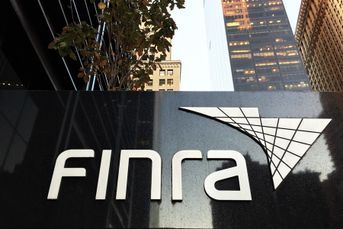Merrill may raise payout for fee-based sales
Merrill Lynch & Co. Inc. is thinking about giving its brokers a raise – a big one. The…
Merrill Lynch & Co. Inc. is thinking about giving its brokers a raise – a big one.
The plan under discussion would increase brokers’ pay to as much as 46% to 57% of the fee the firm collects on an account. The current high is about 40%.
But the possible change in how a Merrill Lynch broker’s pay is structured will affect only those brokers who sell fee-based money management products such as separately managed accounts, sources inside and outside the firm say.
“This is a big difference,” says Danny Sarch, president of Leitner Sarch Consultants Ltd., a recruiting firm in White Plains, N.Y. “The change comes at a price,” he says. “It’s clearly a reaction to widespread dissatisfaction that caused many quality brokers to leave Merrill over the past several years.”
The move under discussion is a clear indication that the nation’s largest brokerage house wants to further push its brokers to gather client assets into fee-based accounts rather than sell investments that generate commissions. Accounts that generate fees create a steady stream of revenue, particularly attractive during the current hard times on Wall Street.
“The momentum of the firm” is fee-based money management, says one broker. Merrill Lynch executives discussed the changes at a meeting telecast to brokers last week.
“This is a high incentive for brokers who haven’t done managed money,” adds the broker. “But where will Merrill get the money to pay for it?”
Robert Mulholland, an executive director with Merrill’s private-client group, and James Gorman, who heads the client relationship group, discussed the potential compensation plan during the televised conference, brokers say.
The company, which has 16,000 brokers, will not give them a formal plan until Labor Day at the soonest, sources say.
At press time, Merrill Lynch had not provided the amount their brokers have invested in money management programs that generate fees. One such program is Merrill Lynch Consults, which has a $100,000 minimum and uses about 40 money managers. The annual fee is typically 3%, or $3,000, with the outside money manager collecting about one-third of that. The rest is divided between the firm and the broker.
Fee structures for brokers – called grids – often are complicated. Merrill Lynch’s grid is especially so. “For that grid, you need a Ph.D.,” says another source familiar with the firm.
A grid defines the percentage of the revenues brokers generate – from commissions and fees – that they take home. Sales are taken into account as well as the broker’s seniority.
Merrill Lynch’s broker payout is currently in line with the norm on Wall Street. Observers say the proposed changes would put Merrill Lynch’s brokers near or at the very top of payment at the wirehouses. “It’s the highest on Wall Street,” says another broker.
But part of the proposed changes includes simplifying that payout. “Before, it was hard to quantify,” says the broker.
For example, the number of new accounts a broker generated or the amount of restricted stock a client had would be part of the grid’s formula, the broker says. Those, and other elements of the grid, would be eliminated under the changes.
Brokers for wealthy clients “are going to do very well” if the change occurs, he says.
The move to give its brokers a raise comes as Merrill Lynch has been increasing revenue by pushing more-expensive products to its wealthy clients (InvestmentNews, May 14).
Merrill Lynch’s less productive brokers also would have an incentive to sell more fee-based money management to clients, say those familiar with the plan. Brokers on the low end, with a payout in the range of 30%, would see that increase to about 40%, the current level of the firm’s top producers.
Although the details are not clear, there’s bound to be a downside for some brokers, sources say. Brokers, for example, could lose certain bonuses. Also, the structure of the long-term stock plan is unknown. Under the discussed plan, “some things are taken away, some things are given,” says Mr. Sarch.
Meanwhile, a key executive in the group that evaluates money managers in Merrill Lynch’s fee-based program recently left the firm and has not been replaced. David Ferrier, a director and vice president of investments, research and analysis, left the company earlier this month.
Mr. Ferrier, a well-known and respected veteran at the firm, was in charge of Merrill Lynch’s due-diligence effort over outside money managers.
The group researches money managers, and it decides which ones are in the fee-based program and who should stay.
It was not clear at press time who would be taking over Mr. Ferrier’s role.
Learn more about reprints and licensing for this article.








